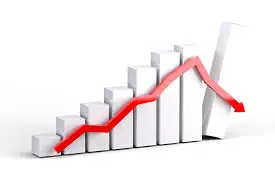Advertisements
Behavioural Economics has emerged as a revolutionary tool in marketing and business, transforming the way companies understand and connect with their consumers. In a world where purchasing decisions are increasingly influenced by psychological and emotional factors, understanding how the consumer mind works is crucial to designing effective and personalized marketing strategies. This analysis delves into the fundamental principles of Behavioural Economics and how its practical application can drive business success, revealing the hidden motivations behind purchasing decisions and how these can be influenced to benefit your company.
Exploring the impact of cognitive biases, heuristics and other psychological elements on consumer behavior allows companies to anticipate their customers’ needs and desires more accurately. This approach not only improves the effectiveness of marketing campaigns, but also optimizes the customer experience, fostering loyalty and increasing conversions. Through practical examples and case studies, we will demonstrate how Behavioral Economics can be integrated into business strategies to obtain tangible and measurable results.
Advertisements

Understanding Behavioral Economics: A New Approach
Behavioral economics is a field that combines psychology and economics to understand how people actually make decisions in the real world. Unlike traditional economics, which assumes that individuals are always rational and utility-maximizing, behavioral economics recognizes that emotions, cognitive biases, and social influences can affect our decisions.
Advertisements
The Role of Cognitive Biases
One of the key concepts in behavioural economics is that of cognitive biases. These are mental shortcuts that our brain uses to make decisions quickly, but which often lead us to systematic errors. For example, anchoring bias leads us to rely too much on the first information we receive, while confirmation bias leads us to seek out and value only information that confirms our pre-existing beliefs.
Understanding these biases is crucial for companies that want to influence consumer behavior. By recognizing how and why consumers make decisions, companies can design marketing strategies that leverage these biases to improve the effectiveness of their campaigns.
Applications of Behavioral Economics in Marketing
Behavioural economics offers valuable tools for designing more effective marketing strategies. By understanding how consumers think and behave, companies can create more persuasive campaigns tailored to the real needs of their customers.
The Use of Nudges in Marketing Strategy
A nudge is a subtle push that guides people toward a decision without restricting their options. In marketing, nudges can be used to influence consumer behavior in a positive way. For example, changing the design of a website to highlight healthier or more environmentally friendly products can encourage consumers to choose those products.
The key is to make the desired option the easiest or most attractive to take. Nudges are effective because they recognize that people do not always act completely rationally and that small changes in context can have a big impact on their decisions.
Success Stories in the Use of Behavioral Economics
Many companies are already applying principles of behavioural economics to improve their marketing strategies, achieving impressive results. These cases demonstrate how understanding human behaviour can lead to significant improvements in business tactics.
Success Stories
- A supermarket increased its fruit and vegetable sales by 15% simply by changing the location of these products so that they were the first thing customers saw when they entered.
- A financial services company improved its conversion rate by 20% by simplifying its sign-up form and reducing the number of options presented to the customer.
- A restaurant chain increased sales of its healthier dishes by describing them in a more appetizing way on the menu and using attractive photos.
These examples highlight how even small changes, when based on a solid understanding of human behavior, can have a significant impact on business results.
Challenges and Limitations of Behavioral Economics
While behavioral economics offers many advantages, it also presents challenges and limitations. It is important to be aware of these in order to implement strategies effectively.
Practical Limitations
A major challenge is that cognitive biases can vary significantly across different cultures and demographic groups. What works in one country or region may not be effective in another. This requires companies to adapt their strategies to specific cultural contexts.
Furthermore, ethics is a critical consideration. Companies must ensure that their influencer strategies are transparent and respectful of the consumer, avoiding undue manipulation. This is essential to maintaining customer trust and a positive reputation.
The Future of Behavioral Economics in the Market
As technology advances, behavioral economics is increasingly integrated into business strategies. Companies that adopt this approach are better positioned to adapt to market changes and consumer demands.
Emerging Trends
A key trend is the use of artificial intelligence to personalize consumer experiences. By combining behavioral data with advanced algorithms, companies can offer more accurate and personalized product recommendations, thereby increasing customer satisfaction.
Another trend is the growing focus on sustainability. Consumers are increasingly aware of the environmental impact of their purchases, and companies can use principles of behavioral economics to effectively promote more sustainable options.
These developments suggest that behavioral economics will continue to be a powerful tool for companies seeking to remain competitive in an ever-changing environment.
Conclusion
Behavioural Economics has emerged as an essential pillar for any company seeking to improve its market strategies in a competitive environment. Through the analysis of human behaviour, companies can identify consumption patterns that previously went unnoticed. This approach, which integrates psychology and economics, allows companies to anticipate and respond to the needs of their customers more effectively.
First, understanding how cognitive biases influence purchasing decisions offers a significant advantage. Companies can design more personalized campaigns that resonate with consumers on an emotional level, thereby creating a deeper connection. Additionally, by using behavioral data, organizations can optimize prices, offers, and customer experiences, resulting in increased customer loyalty and satisfaction.
On the other hand, by adopting these strategies, companies not only increase their chances of success, but also promote more ethical and sustainable practices. This is because Behavioral Economics not only focuses on economic profit, but also on consumer well-being.





